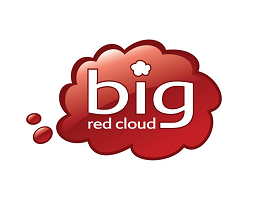Cloud computing is growing in popularity with businesses large and small. As a model for delivering software it streamlines processes for all parties involved. Vendors and customers alike benefit. Accounting software is particularly suited to delivery through this model. But how does the system work and how does cloud accounting provide so many benefits?
Accounts are stored on a server that belongs to the service provider or a cloud service subsidiary. Because the costs are shared by many different parties the cloud service can provide a highly secured environment with many back ups and fail-safes in place that would be unfeasible for even many large businesses to implement or afford. This is why many regard cloud as being more secure than relying on onsite back-up and security.
Accessed from Anywhere
The servers are accessed via the internet just like any other server. In the same way you access your bank account online or any other secure webpage, you access your financial accounts online through the service provider’s interface.
The most useful aspect of this is that it allows you to access, review and update your accounts from anywhere you can get online. This means you can access it from the office, at home or on the move. Overall this offers much greater efficiency and better use of your time.
It has other benefits too. With traditional software you have to install it physically on one particular computer, typically you pay extra for any additional computers you install the software on. If your computer breaks down you have to reinstall the program on another computer. You will also likely have to hook-up the hard drive from the broken computer. Depending on the damage, your data might be corrupted and completely inaccessible.
With cloud computing you simply switch over to any other computer that has internet access and you are back to organising your finances immediately. Data on the servers is regularly backed up and numerous fail-safes are in place so it is always available.
Software as a Service Rather than a Product
The way in which cloud software is delivered to you, the customer, is quite different from how it has traditionally been delivered. Before, you purchased software as a single product like you would buy a DVD or a CD in one transaction, now it is delivered to you continuously more like a television service.
This also has a lot of benefits. As well as the additional security and back-up features mentioned above, when software is delivered as a service it comes with many of the features you would expect of any ongoing service.
Upgrades have long been a problem for software as a product. Updates, upgrades and patches for software require a lot of management, organisation and often additional expense for both parties.
For the supplier, patches and upgrades have to work with a huge variety of computers. Not every configuration of computer can be covered and so individual workarounds have to be developed. The customer then has to be alerted that a patch is available or necessary and a server is needed to host the download.
The cost for the provider here is clear. For the customer there is equal inconvenience. The patch has to be downloaded to each machine that has the software installed, using up bandwidth and processing resources. Then a time needs to found when the program is not being used so the patch or update can be implemented.
With cloud software the computers on which the software runs are under the control of the software company. All of them have the same hardware configuration which means making changes to the software is much less labour intensive for the company. Updates can be made incrementally or when there is low demand on the servers. All of these factors mean service providers can offer very competitive prices to the customer.
For the customer it means that most of the responsibility for taking care of the software and maintaining it is held by the software service provider. This substantially reduces demands on local hardware and on local IT resources. This can make a huge difference in cost, particularly for smaller businesses.
–
Related: What can cloud do for your business?




